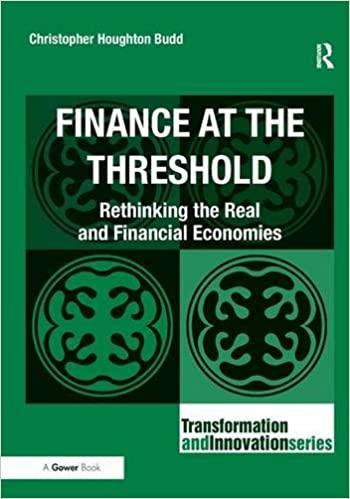Question
A. What is meant by the cost of capital, as the term pertains to common shareholders' equity? We can easily determine the cost of debt,
A. What is meant by the "cost of capital", as the term pertains to common shareholders' equity? We can easily determine the cost of debt, which is the stated rate multiplied by one minus the marginal tax rate; and the cost of preferred stock is usually based upon the annual dividend plus the flotation cost per share for a new issue; but why do we also calculate a "cost" for issuing common stock, other than the flotation? As you may know, a company does not have to pay dividends, and some elect not to, period. With no obligation to "repay" the common shareholders, why do we still consider that there is a cost?
B. There are several accepted methods of determining the monetary advantage of one investment opportunity over another: The payback method; zero discount rate; net present value; internal rate of return; modified internal rate of return; etc. Discuss one or more non-monetary factors that may influence a manager's otherwise objective decision in choosing one criterion over another. Also, which method do you consider the best?
Step by Step Solution
There are 3 Steps involved in it
Step: 1

Get Instant Access to Expert-Tailored Solutions
See step-by-step solutions with expert insights and AI powered tools for academic success
Step: 2

Step: 3

Ace Your Homework with AI
Get the answers you need in no time with our AI-driven, step-by-step assistance
Get Started


